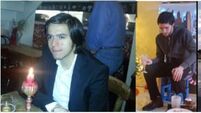Euro becomes third currency in border town
As people in Ireland grappled with the new euro today, a border town in Northern Ireland was starting to make sense of its new triple currency status.
People in Newry, in County Down, have always dealt in both the punt and the British pound sterling.













